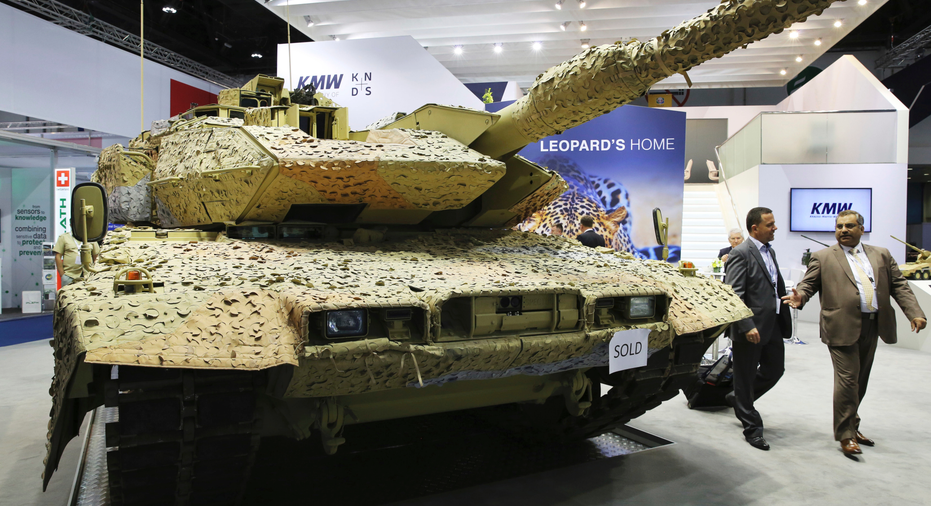Rising exports, Turkish tanks fuel German arms sales debate

BERLIN – The German government fired back Wednesday at critics of its arms export policies, insisting that it takes great care not to approve the sale of weapons to countries that abuse human rights.
Newly released figures show the governing coalition of Chancellor Angela Merkel's conservative Union bloc and the center-left Social Democrats approved more weapons exports over the past four years than its predecessor, including to Saudi Arabia, Egypt and Turkey.
Germany's centrist "grand coalition" approved sales worth 25.1 billion euros ($30.7 billion) between 2014 and 2017, an increase of 21 percent compared with the previous four years under a more right-leaning government, according to data contained in a government response to the opposition Left party.
Exports to countries outside the European Union and NATO rose even more steeply, by 47 percent, to almost 15 billion euros.
Asked about NATO-ally Turkey's reported use of German-made Leopard tanks in its offensive against Kurds in northern Syria, Defense Minister Ursula von der Leyen told broadcaster n-tv that the tanks were sold "as part of a normal procedure under NATO rules and also the rules that Germany has."
The Leopard is produced by Kiel-based Krauss-Maffei Wegmann Maschinenbau. Other major German defense manufacturers include Rheinmetall, Thyssenkrupp and Heckler & Koch.
Still, a Foreign Ministry spokeswoman said Germany's ambassador in Ankara was seeking to have talks with Turkey's defense minister to gather more information.
"Of course, the question of how the Turkish military operation is arranged will play a role," spokeswoman Maria Adebahr told reporters in Berlin.
A spokeswoman for the Economy Ministry, Tanja Alemany, said Germany conducts "very, very serious and restrictive checks before approval (of arms exports), for example to Turkey."
"Nobody says it's easy, but it's true that the German government tries very seriously to handle this responsibly and in a restrictive way," she said.
Omid Nouripour, of the opposition Green party, questioned whether Germany would be able to export so many weapons if it scrutinized its customers closely.
"It would be enough if the German government stuck to its own guidelines," he told public broadcaster ARD. "But they don't."
Merkel's bloc and the Social Democrats are currently discussing extending their coalition for a further term. As part of a preliminary deal earlier this month, the two sides agreed to stop approving arms exports to countries involved in the conflict in Yemen, a move that could hit lucrative sales of military hardware to Saudi Arabia.
___
Follow Frank Jordans on Twitter at http://www.twitter.com/wirereporter



















